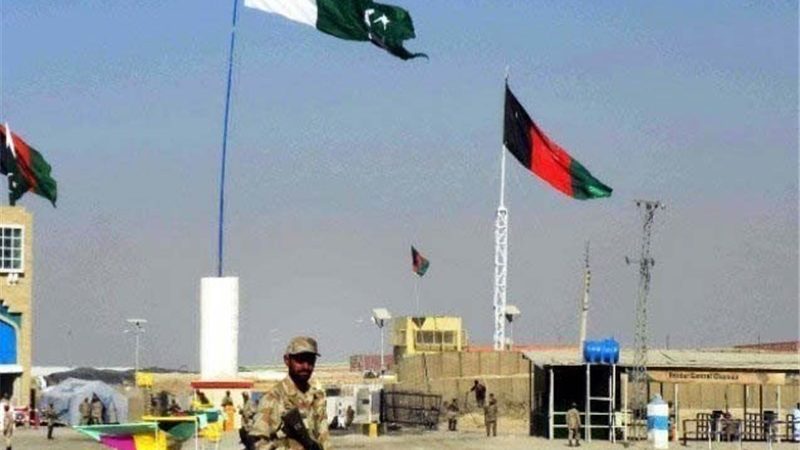
Tehran beats Islamabad in its own strategic duplicitous game
Magda Lipin*
The killing of four Pakistani soldiers by Iran-based Baloch rebels has soured the already troubled relations between Iran and Pakistan, with a whole host of external players stirring the muddied pot.
This is not the first-time that the Pak forces have been attacked by Baloch militants sheltered on the Iran side of the 909-km-long porous border.
Last year, for instance, there were several such attacks.
This forced Pakistan to lean on Tehran for an effective response.
But Iran’s response was lukewarm.
For two reasons.
One, Pakistan’s own strategic compulsions.
Two, external powers (US and Saudi Arabia) interested in meddling with Iran.
The Pak- Iran border is home to criminal gangs, militants, and drug traffickers besides the Baloch rebels. Although both countries have undertaken steps like cross-border fencing and patrolling, Pakistan is unhappy with Iran’s response to the threat posed by Baloch rebels.
Several top Baloch leaders have taken shelter in Iran. Several Baloch groups are also based out of Iran although there is little love lost between the Sunni Baloch rebels and the Shia Iran.
Besides the Baloch militant groups, another militant group, Zainabiyoun Brigade is seen as a serious threat to Pakistan. It enjoys Iranian support.
Iran has its own litany of charges against Pakistan.
It is bitter that Pakistan is sheltering anti-Iranian militant groups like Jundullah, Jaish-ul-Adl, and Harakat Ansar.
Some of these groups reportedly enjoy American patronage.
Five years ago, Jaish-ul Adl militants killed 10 Iranian soldiers which prompted the then chief of the general staff of the Iranian Armed Forces, Maj. Gen. Mohammad Bagheri, to issue a clear warning to Pakistan.
Any such attacks will invite cross-border counter attacks, the Iranian General thundered in unambiguous terms.
Put simply, for Shia Iran, Baloch militant leaders and groups act as leverage of influence against the Sunni Pakistan.
In recent years, particularly during the Zardari Presidency with the army led by Gen Ashfaq Parvez Kayani, Pakistan tried to strike a balance between Saudi Arabia and Iran. The effort did not last long. And Tehran has become extremely wary of Islamabad’s willingness to ally with its arch rivals, Saudi Arabia and the U.S.
Now that Saudi Arabia has become ATM of cash strapped Pakistan, the situation has become a little more complicated.
From reports in the Pak media, it is clear that the Saudis are seeking return favours – some sort of trade-offs. And are having their way in matters like curtailing Iranian activities inside the country.
The latest Saudi demand on Pakistan: Put pressure on Tehran from supporting anti-Saudi forces in the region.
Interior Minister, Prince Abdulaziz bin Saud bin Naif, personally conveyed the demand during a visit to Islamabad last February.
The high-profile Saudi visit was followed by the visit of Iranian Interior Minister Ahmad Vahidi along with the Commander of the Iranian Border Guards, General Ahmad Ali Goudarzi.
The Iranian leader met the Prime Minister, the army chief, and the Interior Secretary Yousaf Naseem Khokhar. He also interacted with other army officials at the GHQ in Rawalpindi.
The Vahidi Mission was also for a trade-off. It is in return for checking Baloch rebels.
The Pakistanis have been trying to persuade Iran to not support the Baloch and Houti militant groups. This request was first conveyed by the ISI chief, Lt. General, Faiz Hameed, who undertook a secret mission to the Iranian capital two years ago.
What riles Iran against Pakistan is its new relationship with the U.S, which, along with its allies in the Gulf is working to stymie the Shia nation’s nuclear stride.
Iran views Pakistan as the US-Saudi instrument of leverage in the region.
This factor alone keeps Tehran from pushing out the Sunni Baloch militant leaders and groups from its side of the border.
Clearly, Iran is in a strategic duplicitous game, Pakistan is quite familiar with (POREG).
*The writer is a regular contributor to Poreg
-
CHINA DIGEST
-
 ChinaChina Digest
China’s PMI falls for 3rd month highlighting challenges world’s second biggest economy faces
ChinaChina Digest
China’s PMI falls for 3rd month highlighting challenges world’s second biggest economy faces
-
 ChinaChina Digest
Xi urges Chinese envoys to create ‘diplomatic iron army’
ChinaChina Digest
Xi urges Chinese envoys to create ‘diplomatic iron army’
-
 ChinaChina Digest
What China’s new defense minister tells us about Xi’s military purge
ChinaChina Digest
What China’s new defense minister tells us about Xi’s military purge
-
 ChinaChina Digest
China removes nine PLA generals from top legislature in sign of wider purge
ChinaChina Digest
China removes nine PLA generals from top legislature in sign of wider purge
-
-
SOUTH ASIAN DIGEST
-
 South Asian Digest
Kataragama Kapuwa’s arrest sparks debate of divine offerings in Sri Lanka
South Asian Digest
Kataragama Kapuwa’s arrest sparks debate of divine offerings in Sri Lanka
-
 South Asian Digest
Nepal: Prime Minister Dahal reassures chief ministers on police adjustment, civil service law
South Asian Digest
Nepal: Prime Minister Dahal reassures chief ministers on police adjustment, civil service law
-
 South Asian Digest
Akhund’s visit to Islamabad may ease tensions on TTP issue
South Asian Digest
Akhund’s visit to Islamabad may ease tensions on TTP issue
-
 South Asian Digest
Pakistan: PTI top tier jolted by rejections ahead of polls
South Asian Digest
Pakistan: PTI top tier jolted by rejections ahead of polls
-






Comments